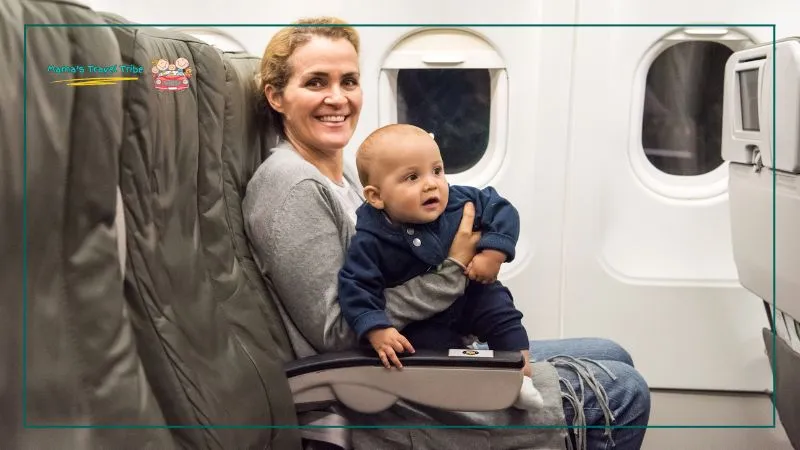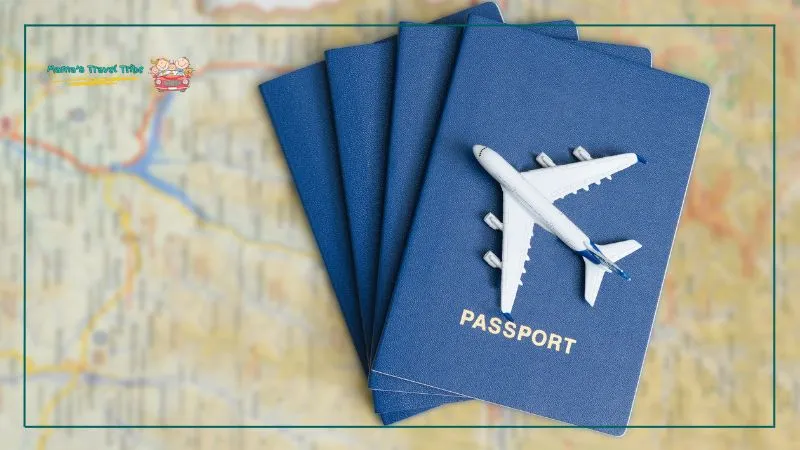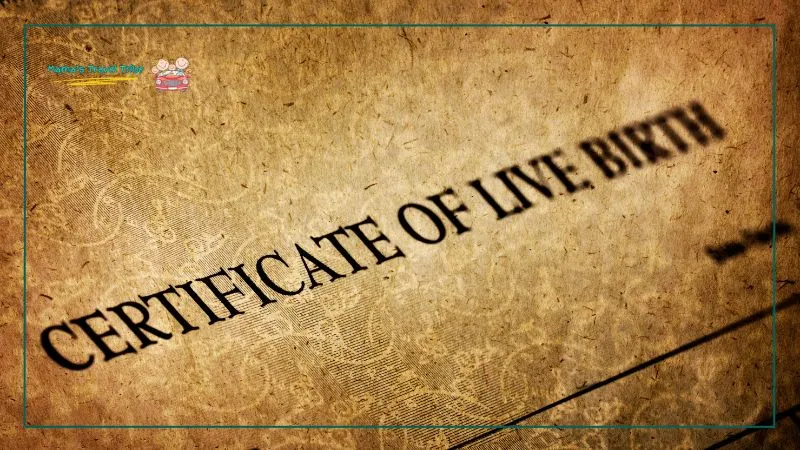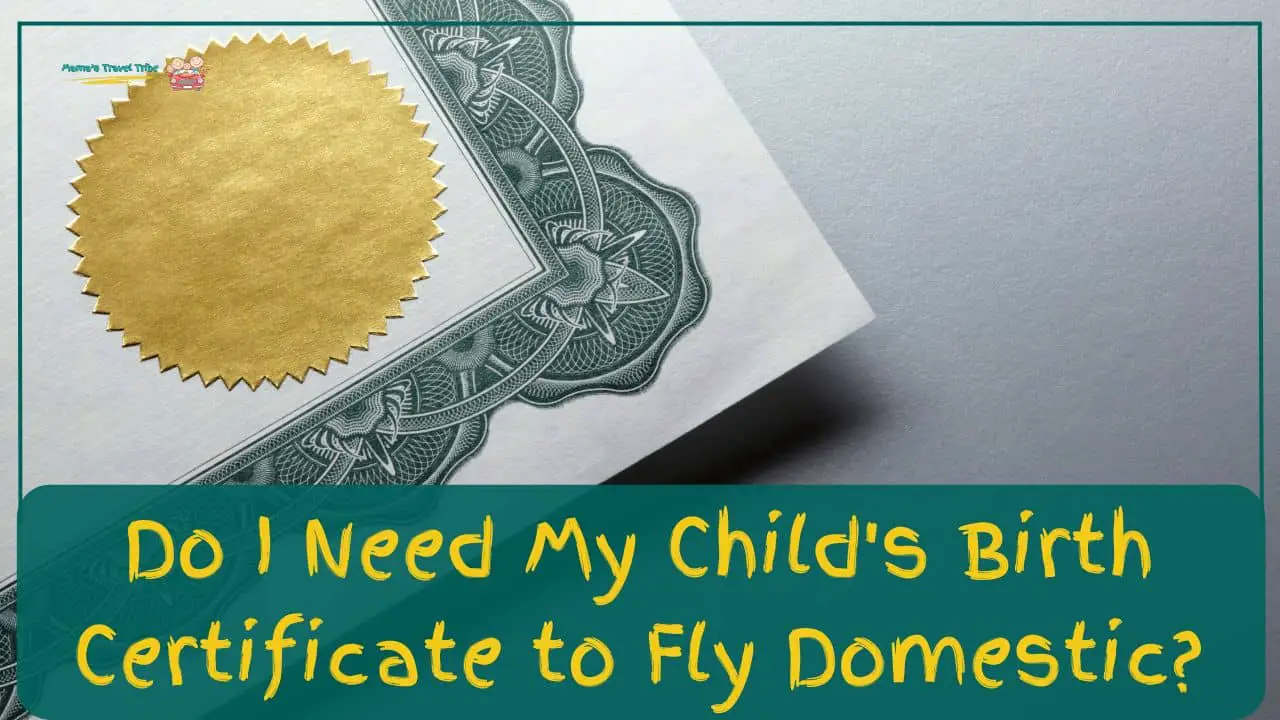“Do I need my child’s birth certificate to fly domestic?” is a frequently asked question by parents planning domestic travel. Well, the answer is – most of the time, you don’t need to show your child’s birth certificate for a domestic flight.
However, having it with you can be very helpful, and I’m explaining how in this guide. Stay with me to learn everything you need for smooth and stress-free travel with your child.
Do I Need My Child’s Birth Certificate to Fly Domestic?
You usually don’t need a child’s birth certificate for domestic flights, but it’s smart to bring it. Some airlines may ask for it to verify age or identity, especially for children under two years old. Having your child’s birth certificate can make things easier.
Bringing your child’s birth certificate can save you from potential hassles and ensure a stress-free travel experience. It’s one less thing to worry about when you’re trying to get to your destination and enjoy your trip.
If you’re sorting out what documents you’ll need for your trip, you might also find it helpful to look at ‘Effortless Air Travel with Your 6-Month-Old: Proven Tips‘ for a calm and comfortable flight with your baby.
When Might You Need a Birth Certificate?
You might need a birth certificate when flying if the airline needs to verify your child’s age for a lap seat, if your child has a different last name, or if you’re traveling internationally. It helps avoid confusion and ensures a smoother check-in process.
Verifying Age for Lap Children
If your child is under two years old and you plan to have them sit on your lap during the flight, some airlines may ask for proof of age. A birth certificate is the best way to show that your child is under two and eligible to fly as a lap child without needing a separate ticket.

Different Last Names
If your child has a different last name than you, airline staff might ask for additional identification to verify your relationship. A birth certificate can quickly clear up any confusion and help avoid delays at the airport. This is especially important for blended families or if you have a legal guardianship situation.
Airline expert Sarah said, “I was traveling with my niece. She has a different last name, and I didn’t have her birth certificate. The airline staff was really nice, but it took a bit longer to get through check-in because they needed to ask a few extra questions. If I had her birth certificate, it would have been much smoother.”
Unaccompanied Minors
For children flying alone, airlines often require a birth certificate to verify their age and ensure they meet the airline’s requirements for unaccompanied minors. This document helps the airline staff take proper care of your child and ensures they follow the correct procedures.
International Travel
While we’re focusing on domestic flights, it’s worth noting that for international travel, a birth certificate and a passport are often necessary. Some countries require additional documents to prove the child’s identity and your relationship with them.
Unexpected Situations
Sometimes, unexpected situations arise. Maybe there’s a discrepancy in the ticket details or a random security check. Having your child’s birth certificate on hand can provide quick clarification and prevent unnecessary stress.
What Documents Does a Child Need to Fly Within the US?
Children generally don’t need ID for domestic flights, but it’s good to carry a birth certificate, school ID, or passport. Airlines may have specific rules, so check with them before traveling. Moreover, for adults accompanying minors, valid government-issued ID is required.
Bring a Birth Certificate
Carrying a birth certificate can be really helpful. Even though it’s not usually required, having it can make the check-in process smoother. It’s useful if the airline needs to verify your child’s age, especially if they’re flying as a lap child. It also helps if your child has a different last name than you.
Use a School ID

If your child has a school ID, bring it along. School IDs are often accepted as a form of identification. It’s a simple way to prove who your child is if needed. Even though it’s not required for domestic flights, having an ID can help speed things up at the airport.
Carry a Passport

A passport is one of the best forms of identification, even for domestic flights. If your child already has a passport, it’s a good idea to bring it. It’s especially handy if there are any last-minute changes and you need to fly internationally. Plus, it’s a solid proof of identity that airlines universally recognize.
Check Airline Rules
Before you fly, always check the airline’s specific rules. Some airlines have their own requirements for children’s identification. Visiting the airline’s website or calling their customer service can give you all the details you need.
Prepare for Security Checkpoints
At security checkpoints, having some form of ID for your child can be beneficial. Even though TSA doesn’t require ID for children under 18, having it can make the process smoother.
Showing a birth certificate, school ID, or passport can help avoid any delays and get you through security faster.
What Does a Minor Need to Fly Without Parents? (Find Out)
A minor flying without parents needs a signed consent form, a photo ID, and possibly a birth certificate. Airlines may also require an unaccompanied minor service fee. You should always check with the airline to avoid any frustrations.
Signed Consent Form
When a minor flies without parents, a signed consent form from the parents or guardians is essential. This form usually includes details about the following:
- Flight
- The child’s information
- Contact details for the parents and the person meeting the child at the destination.
It’s a way to ensure the airline knows the travel is authorized and safe.
Photo ID
A photo ID is often required for minors traveling alone. This can be a school ID, a passport, or another form of identification that includes a photo. The ID helps the airline verify the child’s identity. It’s an important step to keep the child safe during travel.
Birth Certificate

While not always required, having a birth certificate can be useful. It helps confirm the child’s age and identity, especially if there are any questions during check-in or security screening. If your child doesn’t have a photo ID, a birth certificate should be sufficient.
Unaccompanied Minor Service Fee
Many airlines charge a fee for unaccompanied minors. This service fee covers additional care and supervision during the flight. Airline staff will help the child board the plane, stay safe during the flight, and connect with the designated person at the destination.
It’s a valuable service that ensures the minor’s safety and comfort while traveling alone.
Check Airline Specific Requirements
Different airlines have different rules for unaccompanied minors, including age limits and documentation needs. Visiting the airline’s website or contacting customer service can provide the most accurate and up-to-date information.
Prepare Your Child
Preparing your child for the trip is just as important as the paperwork. Explain the process to them, including what to expect at the airport, during the flight, and upon arrival.
Ensure they know who will meet them at the destination and give them emergency contact numbers. This preparation helps them feel more confident and secure while traveling alone.
What Are the TSA Guidelines for Minors? (Everything to Know)
Children under 18 don’t need ID when traveling with an adult but may need proof of age. Minors traveling alone might need ID. Kids 12 and under have easier screening, while those 13 and older follow adult procedures. TSA PreCheck allows kids 12 and under to accompany parents.
Identification Requirements
Kids under 18 usually don’t need ID when flying with an adult on domestic flights. But, airlines might ask for proof of age, like a birth certificate, especially for kids under two who fly as lap infants without a seat.
If kids are flying alone, they might need ID. Kids ages 5 to 14 generally don’t need an ID at check-in, but it’s a good idea to have one. Teens aged 15 to 17 may need some form of ID, like a birth certificate, school ID, or passport.
Screening Procedures
Kids who look 12 or younger have easier screening. They don’t need to take off their shoes, light jackets, or hats during security checks. If you have specific concerns, talk to the TSA officers.
Kids 13 and older go through the same screening as adults. They need to follow the standard procedures at the security checkpoint.
Medical Conditions and Disabilities

If your child has a medical condition, disability, or medical device, let the TSA officer know. You can carry your child through the metal detector if needed.
You can bring formula, breast milk, toddler drinks, and baby/toddler food in amounts greater than 3.4 ounces in your carry-on. These items don’t need to fit in a quart-sized bag. Just inform the TSA officers that you have these items.
Specific Airline Policies for Children Flying Domestic
Major U.S. airlines have varying policies for children flying domestically. Infants under two can often fly for free on an adult’s lap. Unaccompanied minors (ages 5-14) generally incur fees of around $150 and have special services for their safety. Always check with the specific airline for detailed rules and fees.
Delta Air Lines
The Delta Airlines policy is:
Lap Infants (Under 2 Years Old): Infants can travel for free on an adult’s lap on domestic flights. For international travel, a ticket is required.
Children with Their Own Seats: Children under two can also travel in their own seats, with discounted tickets available on some routes.
And if you’re making sure you’ve got all the right gear, don’t forget to check out ‘Top 11 Airline-Approved Car Seats for Secure Travel‘—it’s a lifesaver for making sure your car seat is flight-ready.
Unaccompanied Minors (5-14 Years Old): Delta charges a $150 fee each way for unaccompanied minors. They receive a wristband for tracking and access to the Delta Sky Zone, a kids-only lounge at some airports.
Minors (15-17 Years Old): They can travel alone but can use the unaccompanied minor service for a fee if requested.
JetBlue
JetBlue allows unaccompanied minors to travel for a $150 fee each way. Only nonstop flights are allowed, and there is a limit of three unaccompanied minors per flight. These minors cannot sit in Mint or Even More Space seats.
United Airlines
United charges $150 each way for up to two children using the service. Unaccompanied minors are given wristbands and special tags and can only travel on nonstop flights. The airline provides early boarding and a snack after takeoff.
American Airlines
According to the American Airlines policy, a $150 fee each way is charged for unaccompanied minors. The service is optional for children aged 15-17. Unaccompanied minors can travel only on nonstop flights.
Southwest Airlines
Southwest charges a $100 fee each way. Unaccompanied minors can only fly on nonstop or direct flights. Children aged 12 and over can use the Young Travelers service without a fee.
Spirit Airlines
Spirit charges $150 each way for unaccompanied minors. They must travel on nonstop flights and will receive a lanyard with their information, a snack, and a drink during the flight.
Sun Country
Sun Country does not offer an unaccompanied minor service and does not allow children under 14 to travel alone. Children aged 15-17 can accompany a child between 5-14 years old.
FAQs
Do I Need a Birth Certificate for a 3-Year-Old?
You usually don’t need a birth certificate for a 3-year-old when flying domestically with an adult. However, some airlines might ask for proof of age, especially if your child looks younger. It’s a good idea to bring it along to avoid any potential issues at check-in.
What if I Forget My Child’s Birth Certificate?
If you forget your child’s birth certificate, don’t panic. Most airlines won’t require it for children under 18 flying domestically. However, having some form of ID, like a school ID or a passport, can help. If there’s an issue, explain the situation to the airline staff; they are usually understanding and will help find a solution.
Can I Use a Photocopy of My Child’s Birth Certificate for Flights?
Yes, you can use a photocopy of your child’s birth certificate. While an original document is preferred, a photocopy is often acceptable, especially for domestic flights. Just ensure the copy is clear and legible.
Conclusion
Flying with children can be easy if you’re well-prepared. Here’s a quick summary to remember:
- Children under 18 usually don’t need ID for domestic flights.
- A birth certificate can be helpful to verify age, especially for lap infants.
- Unaccompanied minors may need a signed consent form and photo ID.
- Always check specific airline policies for any additional requirements.
- Prepare for security checkpoints with appropriate documents.
By following these tips, you can ensure a stress-free experience for you and your child. Safe travels!

